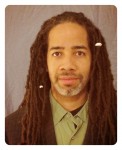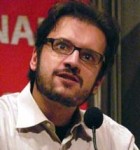Ujju Aggarwal
Ujju Aggarwal is a doctoral student in the Cultural Anthropology program at CUNY Graduate Center whose research focuses on the continued relevance of the public sector within education as an actively contested arena in which neoliberal projects are conceived of, contested, and fought out. This focus grows out her work with an organization she has helped build, Center for Immigrant Families (CIF). She has worked for many years as a community organizer and popular educator and has participated efforts concerning immigrants’ rights, the intersections of arts and social justice, public education, and violence against women of color.
Project: The Productive Work of Public Education in Relationship to Inequality in the United States
Choice has been positioned by education reforms of the past decade (No Child Left Behind, 2001 and Race to the Top, 2009) as a universal, freeing, and democratizing force. The discourse accompanying these reforms has presented the restructuring of public education as responsive to many of the critiques raised by social movements concerning the pervasiveness of structural inequalities. Within the context of local school districts and public schools, parents also engage and appeal to the concept of choice: as the right and responsibility to choose (and gain access to) the best possible school for their child. As such, choice appears to be an actively mobile concept that operates both vertically and horizontally and is structured within policies, engaged by community members and the local level, and attached to social meanings. My research examines how the concept of choice within education increasingly operates as a technology of citizenship. I explore how similar desires (wanting the very best for one’s child) are mapped onto differential political power that is articulated through race, class and gender, and within the context of local struggles over control of public elementary schools. While increased attention has been paid to the concept of choice in education as it relates to the privatization of education vis-à-vis charter schools, by focusing on non-charter public schools, I hope contribute to and expand current understandings concerning the scope and breadth of neoliberal restructuring in public education.
Harmony Goldberg
Harmony Goldberg is a PhD Candidate in Cultural Anthropology at the City University of New York’s Graduate Center. Her research focuses on organizing among domestic workers in New York City, focusing on the work of Domestic Workers United. Harmony received her BA in American Studies from the University of California at Berkeley in 1998. Harmony is a long-time movement educator and writer. She is a founder and former Co-Director of SOUL: the School Of Unity and Liberation (www.schoolofunityandliberation.org), a social justice movement training center based in Oakland, California. After leaving SOUL, Harmony has focused on providing political education and writing support to local community organizations in New York City (including FIERCE and Domestic Workers United) and emergent national alliances of grassroots organizations based in working class communities of color, primarily the Right to the City Alliance, the National Domestic Workers Alliance and the Excluded Workers Congress. She is also a founding editor of Organizing Upgrade (www.organizingupgrade.com), an online strategy journal for left organizers in the United States. Her writing has appeared in Left Turn and the Journal of Aesthetics and Protest.
Project: The Making of the Service Working Class: Contested Class Relations Among Domestic Workers in New York City
My research will provide a case study of an organization of domestic workers in New York City – Domestic Workers United – in order to explore the innovative political demands that are developing within the service working classes. DWU recently won a ground-breaking victory through the passage of the New York Domestic Workers Bill of Rights, which will provide protections for domestic workers who have been historically excluded from labor protections. The Bill of Rights not only overcame historic exclusions; it advanced a vision for expanded labor rights by requiring the state to directly mandate worker protections that – in other industries – would be secured through collective bargaining. This victory offers an extension of the vision for workers rights that is emerging within the new labor movements. My research will thus provide an evocative case study of an immigrant workers’ struggle that has important implications for broader contestations over class relations.
Jesse Goldstein
Jesse Goldstein is a PhD candidate in Sociology at CUNY’s Graduate Center. His research aims to understand the shifting forms that waste has taken through the history of capitalism. His dissertation focuses specifically on how proposals to ‘green’ capitalism are re-working the category of waste, which is increasingly being articulated at the scale of impending planetary, or biospheric, destruction. Before coming to CUNY, Goldstein received an MA in Politics at York University, and before that was a practicing artist and member of the collective art studio Space 1026 in Philadelphia, Pa. He is a founding member of the Historical Materialism: New York organizing collective, and the Space Time Research Collective. His work has appeared in Capitalism, Nature and Socialism and Socialism and Democracy.
Project: Planetary Improvement: Green (Beyond?) Capitalism
There is a growing consensus that industrial capitalism has precipitated global climate change, and that this poses a dire threat to humanity. Responses have split between those arguing for revolution, on the assumption that capitalism can never be green, and those advocating for reforms, on the assumption that green capitalism can, and must, be possible. This project takes a critical look at the ideas and practices of green capitalism, so as to unearth kernels of non-reformist reform within this field. I conduct a discourse analysis of popular non-fiction texts advocating for various forms of green capitalism, and an ethnographic case study of investors, lawyers, entrepreneurs and engineers attempting to put principles of green capitalism into practice. These individuals are experimenting, in thought and practice, with a wide range of new techno-social configurations and are actively grappling with the ways in which the infrastructure of global capitalism has irrevocably shaped world ecology. It is my contention that calls for green capitalism often harbor really radical desires to produce decidedly non-capitalist economies, albeit voiced within a discourse that has collapsed the gulf between capitalism and economy, implicitly presenting the former as a naturalized form of the latter. By critically examining the ideas and practices emerging from this field, my research explores the changing natures of capitalism, as well as the changing natures of what it will take to successfully transform the world in substantively just, humane and eco-centric ways.
Carwil James
Carwil James is a doctoral candidate in anthropology at the CUNY Graduate Center. He researches strategies of grassroots autonomy and disruptive protest in Latin America, focusing on space-claiming protest and road blockades in Bolivia over the past four decades, and its role in the country’s post-2000 transformation. Evolving ideas of collective rights (including the right to strike, and the rights of peasants and indigenous peoples), strategic and tactical questions in collective mass action, and the role of urban space in reproducing and challenging racial and state power are central issues in his research. Previous teaching at New College of California’s Department of Activism and Social Change, activism with Direct Action to Stop the War, Project Underground and Greenpeace USA, and graduate research at the University of Chicago’s Harris School for Public Policy Studies have addressed links between racism, extractive industries, and environmental devastation, as well as exploring the ethical, intellectual, and strategic basis of resistance to these trends. His writing has appeared in the Journal of Latin American and Caribbean Anthropology, the Journal of Peasant Studies, Anthropology Now, Left Turn, Fault Lines, and the book Confronting Capitalism: Dispatches from a Global Movement.
Project:
My dissertation considers space-claiming practices by indigenous and urban popular movements in Bolivia as an example of effective, if contradictory, resistance to neoliberalism. Indigenous movements’ political thought—their critique of power and inequality, innovation of forms of self-organization, and demands for local autonomy—has been critical to the national upsurge, including in Bolivian cities. Indigenous cultural knowledge has shaped these mobilizations and served as one of their greatest weapons. My dissertation argues that social movements’ appropriation of Bolivia’s central physical, political, and symbolic spaces both justifies and embodies the political changes they demand. While the long-term impact of these protests remains uncertain, the movements involved have integrated themselves into national decision-making, enshrined mass mobilization as a continuing part of politics, and maintained an independent capacity to challenge the government they brought to power.
Fiona Lee
Fiona Lee is a Ph.D Candidate in the English program at CUNY Graduate Center. She is currently writing her dissertation on literary cultural texts that elaborate the transnational filiations between Malaysia, Singapore and Indonesia during the period of decolonization. She is also an Instructional Technology Fellow at Macaulay Honors College and co-chair of the Postcolonial Studies Group, a doctoral students’ council organization at the Graduate Center. Her writing has appeared in Reviews in Cultural Theory.
Project: The Spectral Communist
My project examines The Last Communist (Lelaki Komunis Terakhir), a semi-musical documentary film, which challenges the official state history of the British-declared Malayan Emergency (1948-1960), in effect an anti-communist war whose ideology and policies profoundly shaped the postcolonial state of Malaysia. The film critiques the state’s ethno-nationalist discourse of the Malayan Communist Party’s role in the struggle for independence. Its experiments with genre as well as the conditions of its production and circulation–its ban at home and its circulation abroad–raises important questions about the production of national cultural memory that are pertinent to theorizing the practice of imagining community in the era of globalization. I consider how emergent forms of expression require thinking modes of historical production as well as the relation between aesthetics and politics of the nation-form anew.
Marisa Lerer
Marisa Lerer is a Ph.D. candidate in Art History at CUNY Graduate Center, specializing in modern and contemporary Latin American art. She is currently writing her dissertation “30 Reasons to Remember: Patronage and Artistic Strategies for Memorializing Argentina’s Disappeared,” which analyzes public artworks dedicated to victims of state-sponsored terrorism.
Project: 30,000 Reasons to Remember: Patronage and Artistic Strategies for Memorializing Argentina’s Disappeared
Argentina experienced a period of State-sponsored terrorism from 1976-1983 during which the military dictatorship kidnapped and murdered an estimated 30,000 people now known as the disappeared. The perplexity of memorializing the disappeared, whose existence was denied in the Argentine military junta’s official history, generates questions on memory, history, and national identity. This dissertation examines the Argentine protest art and memorials (in all media) created from 1976 to the present dedicated to the disappeared. A study of the memorials’ patronage groups: human rights organizations, cultural institutions, and the Argentine government, their chosen artistic strategies, and the targeted audience reveals the sponsors’ political goals. Through a lens of social history and interviews with the memorials’ audience members, artists, and human rights organizations, I unpack the role that memorials play in re-telling Argentina’s history of the dictatorship. Issues that this dissertation addresses include: art as a political tool in the human rights organizations’ campaign for justice, site-specificity, memorials as a political platform, and conflicts in the memorialization debate.
David Spataro
David Spataro is a poet, organizer, and PhD student in geography at The Graduate Center (CUNY). Under the tutelage of Dr. Cindi Katz, Spataro’s research explores contemporary social movements whose primary goals are the provision of free basic necessities, such as food, household goods, and health-care. Spataro’s current project examines the manner in which groups such as Food Not Bombs and the Really Really Free Market deploy these strategies, which oscillate between direct services and direct action, in order to politicize everyday life.
Project: Decommodified Survival: Direct Action Services and the Politics of Social Reproduction in New York City
In New York City several autonomously organized activist groups work to pry basic survival away from the marketplace. Their fight against the neoliberal tendency to marketize every element of everyday life occurs in places outside the paid workforce. Further, it attempts to create solidarity by redefining how individuals relate to their own social and economic reproduction. Both of these characteristics complicate the way scholars typically assess radical social movements, especially vis-à-vis Marxist orthodoxy that emphasizes the work of production over the work of social reproduction in theories of social change. In this ethnographic case study of Bed Stuy Food Not Bombs, the Really Really Free Market, and the Rock Dove Collective, I examine activists who provide free food, free goods, and free or low cost health-care, respectively. In the process I attempt to reinvigorate the understanding of a politics of social reproduction.
Jesse Schwartz
Jesse Schwartz is a PhD candidate in English and American Studies at the CUNY Graduate Center. His work traces the literary and political responses to American socialism in the late-nineteenth and early-twentieth centuries. Most specifically, his dissertation maps the discursive imbrication of “foreign” ethnicity and radical political forms, which, he argues, produces a conception of American political behavior that circumscribes both. His interests include theories of affect, Marxism, bureaucratic rhetoric, periodical studies, and the convergence of law and literature.
Project: Genetic Revolutionaries: American Socialism, the Russian Revolution, and the Production of the Radical Immigrant, 1873-1929
Arguing that the emergence of the US as an industrial and imperial power was not only concomitant with American anti-radicalism but that the two are mutually constitutive, my project in its broadest terms is an intervention in Cold War historiography, studies in socialist literature, and contemporary analyses of empire. I contend that Gilded-Age concerns over immigration and class striation cohere culturally around the figure of the “radical immigrant.” Linking revolutionary ideas to ethnicity, this figure provides a justification for expansions of state power both domestically and abroad. Aided by post-bellum racial categories, new forms of political representation, unprecedented waves of immigration, and the helixing of federal legislation with anthropometric sciences, the “radical immigrant” would abet a rapidly centralizing American government as it transitioned from a discourse of empire in the late nineteenth century to one of anti-communism in the early twentieth, producing contours of contact that still obtain.
POSTDOCTORAL FELLOW
Jennifer Ridgley
Jennifer Ridgley is a postdoctoral fellow at the Center for Place, Culture and Politics. Her current research explores the convergence between the management of migration and the criminal justice system in the United States, focusing on the restructuring of the U.S. Immigration Service during the late 1930s and early 1940s. A geographer and activist engaged with the politics of labor, citizenship, and social movements, her broader research interests include urban policing, law and geography, and border security. Her first book manuscript, Cities of Refuge: Citizenship, Legality, and Exception in U.S. Sanctuary Cities, documents the evolution of city sanctuary policies in the United States, highlighting the significance of the city as a site through which to understand the bordering practices of state institutions.
Selected Publications:
- (Forthcoming) “Refuge, Refusal, and Acts of Holy Contagion: The City as Sanctuary for Soldiers Resisting the Vietnam War.” ACME: An International E-Journal for Critical Geographies.
- (2008) “Cities of Refuge: Immigration Enforcement, Police, and the Insurgent Genealogies of Citizenship in U.S. Sanctuary Cities.” Urban Geography 29(1): 53-77.
Project: Migrant Labor and the Criminalization of Immigration Law Enforcement
FACULTY FELLOWS
Susan Alice Fischer
Susan Alice Fischer is Professor of English at Medgar Evers College. She received her first degree in Italy and her PhD from the University of London. She is Co-Editor of the peer-reviewed journal Changing English: Studies in Culture and Education (Routledge) and the Book Reviews Editor for the online journal Literary London: Interdisciplinary Studies in the Representation of London. She writes about contemporary women’s London narratives and British national identity in contemporary literature and culture. Recent essays and reviews appear in The Women’s Review of Books, Critical Engagements, Zadie Smith: Critical Essays, Literature and Ethics: From the Green Knight to the Dark Knight, the Blackwell Encyclopedia of Twentieth-Century Fictionand elsewhere, and in the upcoming Reassessing the Contemporary Canon: From Joseph Conrad to Zadie Smith.
Project: Between East and West: Transformational Politics in the Fiction and Film of Hanif Kureishi
Hanif Kureishi has been recognized as one of the most important politically engaged artists working in the UK today. His 1985 script for the film My Beautiful Laundrette and his first novel, The Buddha of Suburbia (1990), examine the experiences of Asian youth in 1970s and 1980s Britain. Yet his most significant work in terms of addressing the contemporary conflict between East and West is The Black Album (1995), a response to the fatwathat the Ayatollah Khomeini issued in 1989 against Salman Rushdie, and his prescient film My Son the Fanatic(1997), which shows the attractions of Muslim fundamentalism for some marginalized Asian British youth. For the fellowship year, I shall explore Kureishi’s critique of both East and West as a space for transformational politics and place his artistic work in the context of broader discourses about national identity and the Muslim presence in contemporary Europe.
Jonathon Gray
Jonathon Gray is Assistant Professor of English at John Jay College and the Graduate Center. Professor Gray received dual BAs in English and Philosophy from Howard University, and his Ph.D. in American Literature from The City University of New York’s Graduate School and University Center. His research interests include post-World War II American literature and culture, African American literature, Comic Books and Graphic Novels, Black masculinity, and Race in Popular Culture. Professor Gray’s first book, Innocence by Association: Civil Rights and the White Literary Imagination is under contract at the University of Mississippi Press. Professor Gray teaches the only comics and graphic novels course offered at CUNY’s 27 campuses and has been featured in the Washington Post and on NPR holding forth about graphic novels, their evolution, and their increasing centrality within popular culture. University of Mississippi Press will publish his forthcoming book Innocence By Association: Civil Rights in the White Literary Imagination in 2012.
Project: Fighting with Re-Memory: Transformational Politics in the Graphic Narratives Footnotes in Gaza and Waltz with Bashir
Samantha Majic
Samantha Majic completed her PhD in 2009 at Cornell University and is currently an assistant professor in the Department of Political Science at John Jay College. Using multi-method qualitative research about sex workers’ political-organizational activities in the San Francisco Bay Area, she explores broader questions of how political activists balance revolutionary and reformist tendencies when they partner with state agencies and engage in nonprofit health and social service provision. She has contributed to books including Out of the Shadows: Woman Abuse in Ethnic, Immigrant and Aboriginal Communities and the Cambridge History of Law in the United States.
Project: Protest by other Means? Sex Workers, Social Movement Evolution and the Political Possibilities of Nonprofit Service Provision
This project engages the 2011-2012 Center for Place, Culture and Politics (CPCP) theme by examining how political activists and movements balance revolutionary and reformist tendencies. Specifically, it examines the American prostitutes’ rights movement and the emergence from it of the St. James Infirmary (SJI), a sex worker clinic in San Francisco; and the California Prevention and Education Project (CAL-PEP), which conducts HIV/AIDS prevention outreach to sex workers and other street-based populations in Oakland, CA. Based on multi-method qualitative research, I argue CAL-PEP and the SJI illustrate a process of radical institutionalization, defined as the incorporation of activist goals into nonprofit organizational practices. For them, this involves implementing and supporting commitments to prostitutes’ rights through their operations and activities, even as they are registered as nonprofits and receive government funding for service provision. As a result, they challenge dominant assumptions that activists who create formal (nonprofit) organizations necessarily abandon their commitments to broader socio-political change. A CPCP Fellowship will support me as I complete this project for publication with the University of Pennsylvania Press.
Shehzad Nadeem
Shehzad Nadeem is Assistant Professor of Sociology at Lehman College, where he teaches courses on urban and global sociology. Over the years, Nadeem’s research has focused on the intersection of labor, culture, and globalization. His book, Dead Ringers: How Outsourcing is Changing the Way Indians Understand Themselves (Princeton University Press, 2011), examines the effects of global outsourcing on Indian employees paid to mimic Americans’ accents, habits, and customs.
He has also published the following articles:
- “Accent Neutralization and a Crisis of Identity in India’s Call Centres,” The Guardian, February 9, 2011.
- “Macaulay’s (Cyber) Children: The Cultural Politics of Outsourcing in India,” Cultural Sociology 3(1): 103-123 (2009).
- “The Uses and Abuses of Time: Globalization and Time Arbitrage in India’s Outsourcing Industries,” Global Networks 9(1): 20-40 (2009).
- “The Living Wage Movement and the Economics of Morality,” Research in Social Movements, Conflicts, and Change 28: 137-167 (2008).
- “Review of Freedoms and Solidarities: In Pursuit of Human Rights,” Contemporary Sociology 37(4): 373-374 (2008).
Project: The Fugue of Globalization
Costas Panayotakis
Costas Panayotakis is Associate Professor of Sociology at the New York City College of Technology of the City University of New York. Originally from Greece, he received a BA in Economics from Stanford University and a PhD in Sociology from CUNY’s Graduate Center. His numerous articles, essays, and book reviews on issues relating to globalization, political economy, ecology and social movements have appeared in a number of journals, including Sociological Theory, Review of Radical Political Economics, Environmental Ethics, Socialist Register,Capitalism Nature Socialism, Science and Societyand Rethinking Marxism. He has also published articles in various newspapers and magazines both in the United States and in Greece and has been interviewed by numerous TV and radio programs in the US and abroad. His book Remaking Scarcity: Economic Democracy and the Myth of Market Efficiency will be published by Pluto Press this fall. He is also the Book Reviews editor of Capitalism Nature Socialism. An amateur performer, he is also the creator of Austerity Nut, who travels through New York City subways preaching the need for all working people to sacrifice for “our suffering brothers and sisters on Wall Street.”
Project: The Politics of Economic Democratization
Charity Scribner
 Charity Scribner’s scholarship examines the cultural response to the rise and fall of left-wing militancy in Germany. She has held teaching and research positions at Columbia University, the Kulturwissenschaftliches Institut-NRW, the Humboldt University, the University of Oxford, and the Massachusetts Institute of Technology, where she was granted the Class of 1954 Career Development Professorship. On the faculty of the English Department at LaGuardia Community College, in 2010 Scribner received an award from the National Endowment for the Arts to fund a public art collaboration with CUNY students and the visual artists Hong-An Truong and Thomas Hirschhorn. This year she is also teaching critical theory in the Department of Comparative Literature at the CUNY Graduate Center.Charity Scribner
Charity Scribner’s scholarship examines the cultural response to the rise and fall of left-wing militancy in Germany. She has held teaching and research positions at Columbia University, the Kulturwissenschaftliches Institut-NRW, the Humboldt University, the University of Oxford, and the Massachusetts Institute of Technology, where she was granted the Class of 1954 Career Development Professorship. On the faculty of the English Department at LaGuardia Community College, in 2010 Scribner received an award from the National Endowment for the Arts to fund a public art collaboration with CUNY students and the visual artists Hong-An Truong and Thomas Hirschhorn. This year she is also teaching critical theory in the Department of Comparative Literature at the CUNY Graduate Center.Charity Scribner
Scribner’s first book, Requiem for Communism (MIT 2003), analyzes European literature and art in the wake of communism’s collapse. She has also published articles in the New Left Review, Critical Inquiry, and Grey Room. Visit her website http://www.charityscribner.net/
Project: Transformational Politics and Culture after the German Autumn: Toward a Postmilitant Critique
The Red Army Faction (RAF), a left-wing militant organization, terrorized West German society from the 1970s to the 90s. Led mainly by women, the group imagined its anti-imperialist, anti-fascist campaign as an extension of the revolutionary impulses that charged through the “Third World.” What can we learn from the RAF’s use (and abuse) of strategies that were often ill-suited to their historical circumstances? How have artists, writers and critics revisited the German armed struggle in order to elaborate what I term “postmilitant” critiques of the polemics between reform and revolution? In response to these questions I propose to write two chapters that will complete the manuscript for my second book. Chapter 3 will examine early criticism of the RAF from prominent leftists such as Jürgen Habermas and Joschka Fischer. Chapter 7 will engage filmmaker Fatih Akın’s reflections on the imprisonment of suspected terrorists in West Germany and Turkey in order to lay forth the postmilitant lessons that can be taken from the failures of the RAF program.

Robyn Spencer
Assistant Professor of History, Lehman College
Robyn C. Spencer received her PhD in History from Columbia University in 2001. She was an Assistant Professor of African and African American Studies, and History at Penn State University from 2001-2007 and currently works as an Assistant Professor of US History at Lehman College in the Bronx, NY. Since she began studying social movements as an undergraduate history major at SUNY Binghamton, Professor Spencer’s inspiration has come from the examples of those who chose to fight injustice, racism, and sexism. Her areas of expertise include black social protest after World War II, urban and working-class radicalism, and gender. She is currently completing a book on the Black Panther Party’s political and organizational evolution in Oakland, California. Through writing, teaching and public presentations, Professor Spencer aims to educate others about the contributions of urban, working-class African Americans, especially women, to the black freedom movement. She has presented her work at close to a dozen universities and several correctional institutions. She has also participated in seminars aimed at educating high school teachers about the latest interpretive trends in her field. She was in residence at the Schomburg Center for Research in Black Culture in Spring 2010, doing research on how working class African Americans’ anti-imperialist consciousness in the 1960s shaped their engagement with the movement against the Vietnam War. In many ways, it continues her emphasis on exploring overlapping and intersecting boundaries between social protest movements.
Project: No Justice, No Peace: Black Liberation Politics and the Movement Against the Vietnam War
This project explores the history of the many organizations and individuals rooted in grassroots Black America who opposed US involvement in Vietnam from the late 1950s through the early 1970s, when the US withdrew. This hidden history of Black anti-war activism involved thousands of African Americans who defined their actions as part and parcel of the black freedom movement. This proposal is rooted in the premise that this anti-war activism was central to the black freedom movement in the 1960s and 1970s and was a crucial aspect of black anti-imperialist and internationalist consciousness. It argues that the framework of “peace” which has dominated how historians have understood the anti-war movement has served to obscure the grassroots movement against the war that was rooted in the African American community.

Jeanne Theoharis
Professor of Political Science, Brooklyn College
Jeanne Theoharis is professor of political science and the first endowed chair (2007-2009) in women’s studies at Brooklyn College. She has authored or co-authored numerous books and articles including Want to Start a Revolution?: Radical Women in the Black Freedom Struggle, co-edited with Dayo Gore and Komozi Woodard; Groundwork: Local Black Freedom Movements in America and Freedom North: Black Freedom Struggles Outside of the South, 1940-1980, co-edited with Komozi Woodard; Our Schools Suck: Students Talk Back to a Segregated Nation On the Failures of Urban Education, co-authored with Gaston Alonso, Noel Anderson, and Celina Su; and Not Working: Latina Immigrants, Low-Wage Jobs, and the Failure of Welfare Reform, co-authored with Alejandra Marchevsky. Her current project is a biography of Rosa Parks, under contract with Beacon Press, due out in January 2013. She is also co-founder of Educators for Civil Liberties and has published a number of articles on the abrogation of civil rights in the federal system post-9/11.
Project: A Life History of Being Rebellious: The Radicalism of Rosa Parks
VISITING FELLOWS
Simon Addison
Marie Curie International Fellow
Project: Political Geographies of Humanitarian Emergency in Central Africa
Matilde Cordoba Azcarate
Fulbright Fellow
Project: Urban Flexibility and Reconstruction
Laura Liu
Center for Place Culture and Politics Visiting Faculty Fellow
Assistant Professor of Urban Studies, Eugene Lang College, The New School
Laura Y. Liu is Assistant Professor of Urban Studies at Eugene Lang College, The New School. Her research focuses on community organizing and urban social justice; the socio-spatial dynamics of immigrant communities; race, gender, and labor politics; and the relationship between methodology and epistemology in activism. Her ongoing research project examines urban social transformation, specifically the relationship between community organizing, identity and labor, and the production of knowledge in urban political activism.
She has written on the connection between geography and industry in the art exhibit Anne Wilson: Wind/Rewind/Weave (2011), and on the impact of new technologies on urban space in Situated Technologies Pamphlets 7: From Mobile Playgrounds to Sweatshop City (2010, with Trebor Scholz). Other published work addresses the impact of September 11 on Chinatown (Indefensible Space, 2007, Ed. Michael Sorkin). Her articles have appeared in Urban Geography; Gender, Place, and Culture; and Social and Cultural Geography. Liu is writing a book called Sweatshop City,which looks at the continuing relevance of the sweatshop both metaphorically and materially in Chinatown and other immigrant communities, but also more broadly in New York City and other post-Fordist, globalized contexts.
In addition to publishing, Professor Liu regularly presents her work at conferences and in invited lectures. In 2009 and 2008, she was invited to participate in the Workshop on Ethnographies of Activism at the London School of Economics. She has held fellowships from the Society of Women Geographers and the Institute for Research on Women at Rutgers University. Prior to coming to The New School, she held a joint appointment at Dartmouth College in the departments of Geography and Women’s and Gender Studies. She holds a doctorate and a masters degree in Geography as well as a certificate in Women’s Studies, all from Rutgers University. Her bachelor’s degree in Architecture is from the University of California at Berkeley.
Project: Sweatshop City
While a Visiting Scholar at the Center for Place, Culture, and Politics , I will be developing a manuscript titled Sweatshop City: Globalization, Identity, and Community Organizing in New York City’s Chinatown. The project examines immigrant community organizing around labor and urban redevelopment issues in New York City’s Chinatown to expose the continuation of sweatshop features in immigrant neighborhoods and labor markets, including those where the service economy predominates. These dynamics reflect the embeddedness of identity within the domains of immigrant labor, community, and politics. Immigrant community organizing therefore operates with an understanding of the centrality of race, gender, ethnicity, and national identity, to the lived experience of class politics. Sweatshop City posits that these overlapping forces extend beyond Chinatown into other spaces of immigration, gentrification, and organizing. The research will contribute to the analysis of globalization in cities, especially around low-wage immigrant labor and the neighborhood dynamics of immigrant enclaves. The study will also contribute to the research on the efficacy of immigrant political action and resistance to globalization.
Brinda Sarathy
Center for Place Culture and Politics Visiting Faculty Fellow
Assistant Professor of Environmental Analysis at Pitzer College
Brinda Sarathy is assistant professor of environmental analysis at Pitzer College in Claremont, CA. Her book, Pineros: Latino Labour and the Changing Face of Forestry in the Pacific Northwest (forthcoming in Fall 2011 from UBC Press), provides a social history of Latino immigrants and forestry in the Pacific Northwest, and a comparative analysis of pineros today with Anglo loggers and tree-planters from prior decades. Sarathy received her Ph.D. in Environmental Science, Policy, and Management in 2006 from the University of California, Berkeley, and held a post-doctoral position at the University of California Institute for Mexico and the United States (UCMEXUS). Her research on pineros has been supported by grants from the Ford Foundation, the Rural Sociological Society, the Morris K. Udall Foundation, and the Social Sciences and Humanities Research Council.
Claudia Zamorano
Visiting Researcher
Centro de Investigaciones y Estudios Superiores en Antropología Social (CIESAS), Mexico City

















